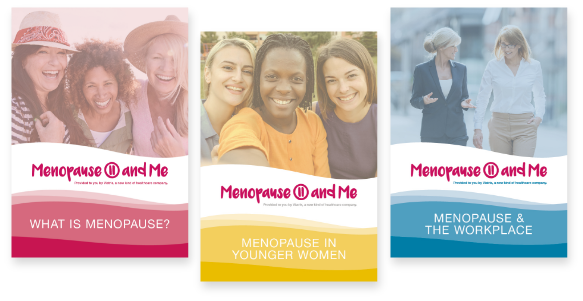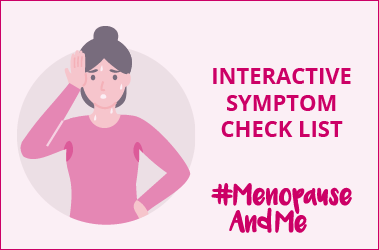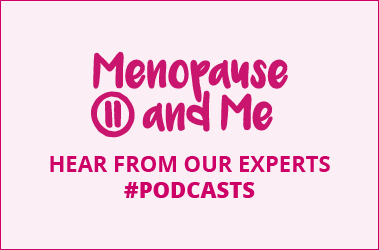
Peri-menopause
The peri-menopause is the start of the transition towards menopause (when the number of eggs are at a low level and the ovaries stop producing the female hormones).
Although each woman’s experience is different, during peri-menopause, most women will find it more difficult to become pregnant and may get irregular or heavy periods.
The peri-menopause begins some years before the menopause itself as the ovaries gradually begin to produce less of the hormone oestrogen. It usually starts a few years before a woman’s last period, when she’s in her 40s, but it can sometimes start earlier.
The peri-menopause lasts up until the menopause. How long the peri-menopause lasts depend on the individual; this can be anything from months to years. The peri-menopause ends when a woman has gone 12 months without having a period and so has officially reached the post-menopausal stage.
WHAT ARE THE SIGNS AND SYMPTOMS OF THE PERI-MENOPAUSE?
Possible changes that may occur during peri-menopause include:
-
Hot flushes (also known as hot flashes)
-
Night sweats
-
Changes in the menstrual cycle (also skipping periods/cycles)
-
Low energy levels
-
Mood swings
-
Skin changes
-
Poor sleep or insomnia
-
Vaginal dryness
-
Decreased sexual desire
-
Unpredictable breast tenderness
WHAT HAPPENS TO MY SEX LIFE DURING THE PERI-MENOPAUSE?
Most women do not experience major changes in their sex lives during peri-menopause. Some women may notice more vaginal dryness. This is the body's response to a decreased level of oestrogen. Your healthcare professional can discuss options to deal with vaginal dryness.
If you are concerned, try talking to your partner or family and friends about what you are going through and explain that this is a natural transition towards the menopause.

IS BIRTH CONTROL REQUIRED DURING PERI-MENOPAUSE?
It is still possible to become pregnant during peri-menopause. The medical risks associated with pregnancy increase a lot during this time in a woman’s life. To avoid unintended pregnancy, contraception would still be required.
No one method is right for everyone, so talk to your healthcare professional to find out which method is best for you.
WHAT TREATMENTS ARE RECOMMENDED?
Hormone replacement therapy (HRT) is an option, particularly for women in the early stages of menopause. Your healthcare professional will discuss with you the benefits and risks of HRT and other treatments. The management of your menopause should be tailored to you.
Not all women can take HRT. There are other treatments that can help for women where HRT is unsuitable, or if they do not want to take HRT. These can include both treatments that are prescribed and complementary or alternative therapies.
CBT (cognitive behavioral therapy) may also be considered to alleviate low mood or anxiety that arise as a result of the menopause.
For those wishing to try complementary therapies, the quality, purity and constituents of some of these products is still unknown and should be discussed with a health care professional.
You should also establish a healthy lifestyle, which includes activities such as regular weight-bearing exercise, a healthy diet, and stopping smoking.
Attend your regular mammography and blood tests, which will screen for diabetes and high cholesterol.
Remember, every woman is an individual. For more information about the peri-menopause or help managing your symptoms, fill out My symptom checklist and speak with your healthcare professional.
Please select where you believe you are on your menopause journey
Early Menopause
Peri menopause

Want to know more about the menopause?
Request a free copy of our guidebooks
WHAT IS MENOPAUSE?
MENOPAUSE IN YOUNGER WOMEN
MENOPAUSE & THE WORKPLACE
Request hereRecommended for you
Job Code: NON-2022-0111
Date of preparation: February 2022



















